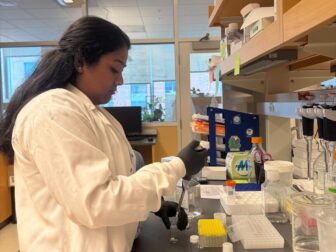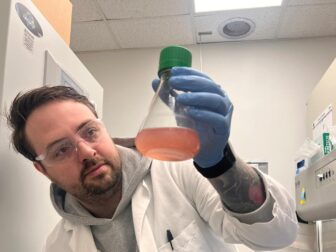Researcher Stories
Get to know the PhRMA Foundation’s award recipients.

Developing Molecules to Treat Allergic Reactions
Like nearly one-third of Americans, PhD student Shruti Dharmaraj suffers from allergies, which helps motivate her to persevere in her research on how to address the root causes of allergies reactions.
Watch Now
Investigating Malaria’s Impact on the Brain to Find Therapeutic Targets
Alan Ardito, a PhD student at Brown University, is studying how the parasite that causes malaria impacts the human brain.
Watch Now
Empowering Older Adults with Diabetes to Discuss Deprescribing with Doctors
Nha Tran, a PhD student at the University of Michigan, is studying what motivates or stops older adults with diabetes from talking with their clinicians about taking fewer medications.
Watch NowStudying RNA to Find Molecular Targets for Alzheimer’s Disease Treatment
Bernardo Aguzzoli Heberle, a PhD student at the University of Kentucky, is examining the role of RNA in Alzheimer’s disease to identify new targets for early diagnostics and treatments.
Awardee Spotlight

Audrey Brown, PhD
- University of Virginia
“I am honored to have been chosen for the PhRMA Foundation Postdoctoral Fellowship in Translational Medicine. Using this fellowship, I will dedicate years of research toward understanding how genetic polymorphisms affect pathogen susceptibility, thereby building the foundation for preventions and treatments of deadly infectious diseases. ”
Reprogramming CAR T Cells to Overcome Barriers in Treating Solid Tumor Cancers
It’s not hard for Azlann Arnett to stay motivated through the ups and downs of scientific research when he works just a short walk away from the patients he is trying to help.